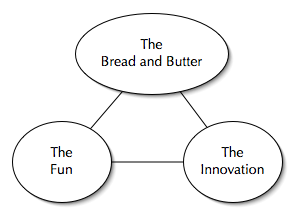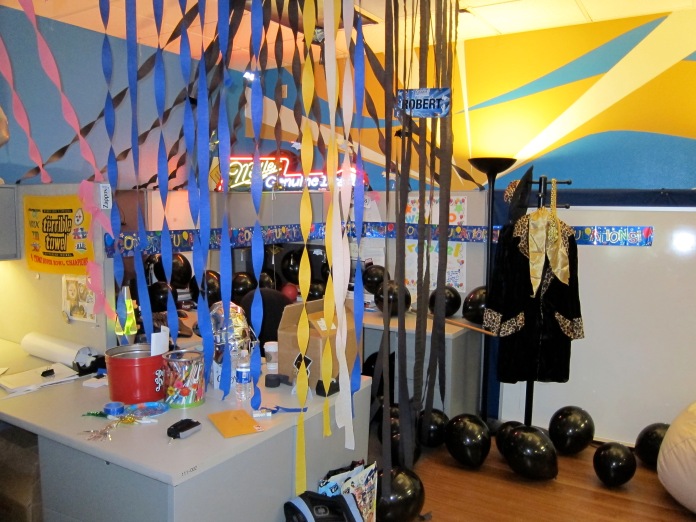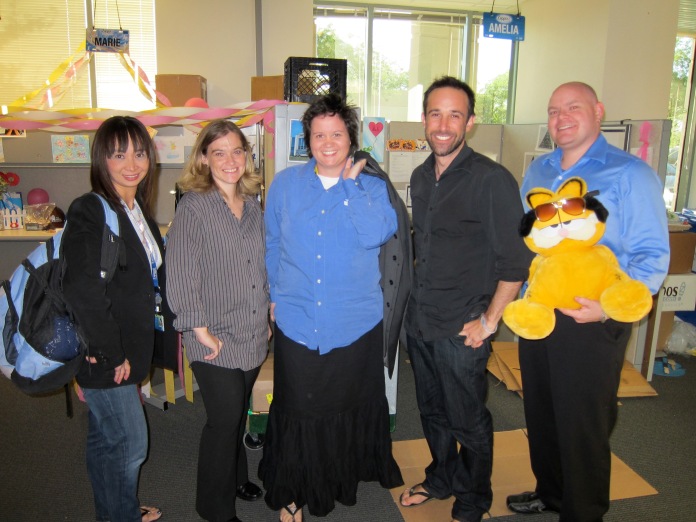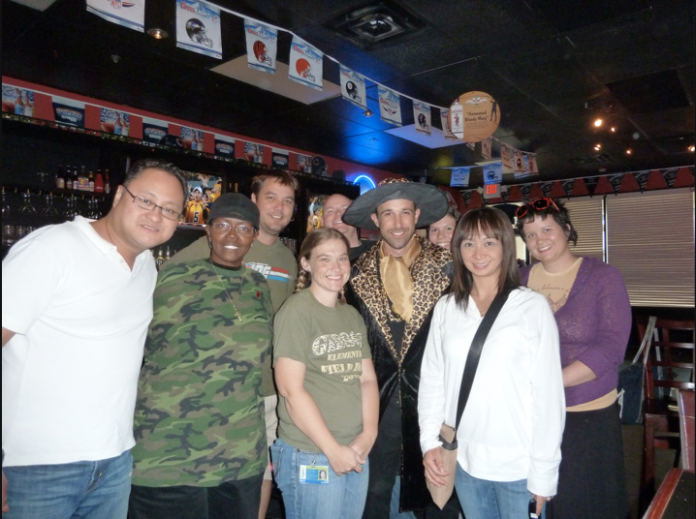Nathan Heller writes a brilliant piece on the TED talks in the New Yorker, asking the question, “Has a conference turned idea into an industry?”
Tag Archives: culture
Do you have a healthy sense of drama?
The word “drama” has gotten such a bad wrap. People say they want less drama in their lives and their relationships, and yet we emotionally crave it.
What do I focus on??? (the 3-point strategy)
"If you have more than 3 priorities, then you have no priorities" – Jim Collins in Good to Great.
Willingness: The uber value
Values are the DNA that run our lives. Whatever it is that drives you, there's a value there. Whatever you wish you had more of, there's a value there. What you admire in others…a value.
But what if certain values were more valuable than others? What if there was a value that created leverage for us to achieve all the other values? To me that value is willingness… Willingness to try new things.Willingness to listen.
Willingness to follow your heart.
Willingness to be wrong, or even do what's "wrong."
Willingness to act irrationally.
Willingness to do it, despite the fear.
Willingness to fail. It's had a huge impact on my life over the past several months… I spent half my life trying to be vegetarian, now I'm experimenting with the Paleo diet, and learning from all the vegans who have debunked the China Study. I grew up Jewish and studied it intensely, now I'm learning immensely from the channeled readings of Christ in A Course in Miracles. I'm even dating the kind of women I thought I would never be with, and I'm having a blast. Willingness disarms a very dangerous belief. It's the belief that we know what's best for ourselves and for others. Now keep in mind, the keyword here is "belief." How many times in your life have you wanted something (or somebody), and then it wasn't all that great? Now instead imagine you are willing to let go of your desires. Imagine that maybe you don't know what's best for you. But you're willing to experience, to listen, to fully engage in the moment. Then rather than imagining what's good for you (a belief), you will know it for certain. That's the process of knowing. I call it real-time fulfillment.
The Roast of Robbe Richman
I truly have the best team in the world.
After returning from my 30 day training / initiation, the team decorated my entire area, they all dressed up like me, and then took me out to roast me (yes, as in, I sit there and listen to them rag on me – in a pimp suit, no less).
This is my desk covered in hundred balloons, streamers and graduation hats.
This is half the team dressed up like me (I either wear blazer and jeans, or blue shirt and dark pants).
This is the actual roast, and yes they made me dress up in a full pimp outfit (though I seem to look like a Las Vegas Marachi player instead). Topics included of my obsession with raw vegetables and smoothies, the times I tried my Krav Maga moves on co-workers, and my overuse of the phrase “…and such.”
Thanks everyone for such an amazing return to the Zi Lounge. I’m so happy to be a part of this team.
My Zappos Jedi Training
4:30am. I'm up before my 5am alarm.
We have to be in our chairs, ready to start by 7. If I'm there at 7:01 I have to start the entire month over with a new class. It's a brilliant accountability-building ritual that's built into our training. Just one of many techniques to learn our culture.
"All day, every day," he says, without skipping a beat, in a tone of total confidence. I couldn't help but smile. I can see why some people have called the Zappos family a cult. Some find it jarring to see so many people smiling in one office. For others, it's life changing… A few weeks ago I sat down with a world class journalist who said to me, with tears in his eyes, "I have reported on every major company and met with the heads of states, and I have never felt so welcomed and embraced as I have here at Zappos." "Zappos is a spiritual experience…" I was completely taken aback when the head of Ken Wilber's Integral Institute (arguably the most successful institution in the field of modern philosophy) had this to say: "Zappos is a spiritual experience. This is not hyperbole. After touring Zappos for three hours I immediately recognized the state of consciousness that the Zappos environment induces is the same as the deep meaning states of awareness that are often characteristic of spiritual events." – Robb Smith "Culture eats strategy for breakfast." – Peter Drucker Zappos has become well-known as the gold standard of customer service. However, what most people don't realize is that the Zappos family culture is what powers the service. The idea is simple – treat your people well and make them happy. Happy employees then make your customers happy. Of course, the process starts way before that… "Harder to get into than Harvard."- jokes COO Alfred Lin. Zappos accepts 1% of all applicants. That's less than Harvard University. Then there are four weeks of training before the job even begins. Many people find that absurd, to invest that much time in employees who start at less than $12 an hour (and then offer them $2000 to quit, in order to make sure they really want to be there). I am finally now going through the Zappos customer service and culture training, after being at the company a year and a half. I had come in as a consultant to re-launch Zappos Insights. And then I was always so busy running the business with Donavon, that I never had time to take the full-time training. But thanks to my amazing team, and Scrum, I finally had the time. "I think this saved my marriage." I had heard that Zappos customer service training changes you as a person. I had no idea how much that was true until I started hearing my classmates' feedback just a few days into the process… "I'm able to connect with people in a totally new way. I used to just mind my own business, but now I'm looking people in the eye, saying hi, asking if I can help. I talked to an older gentleman in a wheelchair at Walmart and his entire face lit up." – Eric "I think this saved my marriage. I'm talking to my husband in a totally different way. We used to be so quick to get on each other's nerves, and now I'm really listening, I'm not overreacting and I'm seeing him in a new light." – Jen Can you believe this was three days into the training? We learned so much that by the time we finally got to the phones I was so excited I couldn't stop smiling. This wasn't just customer service. This felt like a performance. How could I wow people today. What are they going to throw at me? Bring it on! Putting on the head set, I did not feel like I was in a call center. I felt like I was part of NASA mission control. It felt that important to me. "…we just happen to sell shoes." If you've been reading my blog recently, you've seen how much I've been writing about dreams, Inception, The Matrix, and waking up from trance states. I've come to believe that's what we're up to at Zappos. We're about waking people up to how they can be happy. (Insider's Hint: To get happy, try delivering happiness). Yes, that's a double entendre (see the second half here). Tony, our CEO, is fond of saying, "We're a service business, we just happen to sell shoes." I didn't realize how true that was until I started this training. We're always looking for new ways to connect with people, to WOW! our customers and to WOW! each other. What's most interesting, is that this really doesn't take much time or money. It all starts with looking someone in the eye, and with the utmost sincerity, saying "Hi! How are you?" When it's done right, you can really light people up.



